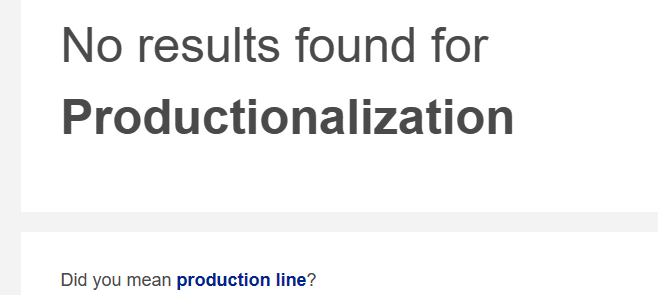Productionalize, Productionize, or Productionise?
This happens to me all the time. Which is it, Productionalize, Productionize, or Productionise? You are writing and come across a word that does not look right. This article covers one of my pet peeves, “Productionalization.” As I looked at various sources, I realized I must open my mind to new English. Have I stumbled across multiple nationality grammar rules?
Color or Colour?
I always seem to have questions when writing documentation. Usually, a section explains how to move a developed solution to production. I have always liked using productionize, but somehow it never looks right.
I want to set the record straight; the word you are looking for is productionize. Ah, now I feel better. But Wait!! Is it correct? Let’s look it up.
My first go-to when unsure is usually Dictionary.com, but there are no entries for any of these variations. Really?
There is an OxfordDictionary entry:
“Productionize (also productionise), verb, To produce for general use; to put into production. It can be traced back to the 1930s. From production + -ize. Cf slightly earlier productionized.”
There is a Wikipedia entry for this:
“Productionisation (Commonwealth English) or productionization (American English) is the process of turning a prototype of a design into a version that can be more easily mass-produced.”
There is an Urban Dictionary definition;
“The process by which a prototype software application is made production ready. Patrick took his skunk works software project, productionalized it, then sold it for a fortune.”
Given these references, it may be alright to use either word. The “s” and “z” in productionise and productionize seem to have a good reference in the Oxford dictionary. Depending on your level of trust, Wikipedia and the Urban Dictionary do have hope for productionisation and productionalized.
So, I guess it is alright to say, “Steve worked into the evening on the productionalization of his solution.” I used this more often in clients when working with their Power BI Project Management engagements.
This provides a good lesson for those who write documentation and training documents. The English language is changing, and we need to be more open to allowing writers some leeway in getting their message across.

